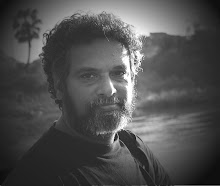A Case for Theatre in Service of Humanity -Jessica A. Kaahwa, Uganda
World Theatre Day Message 2011 - Jessica A. Kaahwa
Today’s gathering is a true reflection of the immense potential of theatre to mobilize communities and bridge the divides.
Have you ever imagined that theatre could be a powerful tool for peace and reconciliation? While nations spend colossal sums of money on peace-keeping missions in violent conflict areas of the world, little attention is given to theatre as a one-on-one alternative for conflict transformation and management. How can the citizens of mother-earth achieve universal peace when the instruments employed come from outside and seemingly repressive powers?
Theatre subtly permeates the human soul gripped by fear and suspicion, by altering the image of self - and opening a world of alternatives for the individual and hence the community. It can give meaning to daily realities while forestalling an uncertain future. It can engage in the politics of peoples' situations in simple straightforward ways. Because it is inclusive, theatre can present an experience capable of transcending previously held misconceptions.
Additionally, theatre is a proven means of advocating and advancing ideas that we collectively hold and are willing to fight for when violated.
To anticipate a peaceful future, we must begin by using peaceful means that seek to understand, respect and recognize the contributions of every human being in the enterprise of harnessing peace. Theatre is that universal language by which we can advance messages of peace and reconciliation.
By actively engaging participants, theatre can bring many-a-soul to deconstruct previously held perceptions, and, in this way, gives an individual the chance of rebirth in order to make choices based on rediscovered knowledge and reality. For theatre to thrive, among other art forms, we must take the bold step forward by incorporating it into daily life, dealing with critical issues of conflict and peace.
In pursuance of social transformation and reformation of communities, theatre already exists in war-torn areas and among populations suffering from chronic poverty or disease. There are a growing number of success stories where theatre has been able to mobilize publics to build awareness and to assist post-war trauma victims. Cultural platforms such as the “International Theatre Institute” which aims at “consolidating peace and friendship between peoples” are already in place.
Jessica Kaahwa, Ph.D., possesses a long and varied career in facilitation and designing of participatory communication methodology for development. She currently lectures in the Departments of Drama and Literature at Makerere University, which is where she also received her Masters degree. Widely traveled, Dr. Kaahwa’s undergraduate degree is from University of Benin, Nigeria where she also worked as a broadcaster with the External Service – Radio of Nigeria. Dr. Kaahwa went on to study Theatre History, Theory and Criticism at the University of Maryland, College Park, where she received her Ph.D. in 2001. Dr. Kaahwa has been the architect of a number of national initiatives that have sought to use theatre and media as a constructive force in conflict settings and for health improvement. She has and continues to experiment with theories that expand the discourse on theatre practice. A good example is her recent experimentation with “Theatre for Personal Meaning” and “Theatre for Conflict Communication.” She is currently working on integrating “Process Theory” into Theatre Therapy practice.
Dr. Kaahwa is a great believer in “teaching by doing” and has in recent years, conducted training facilitation for both international and national organizations.



 Deshaposhini's ‘Madhyadharanyazhi,' ‘Kalamkari,' directed by Sreeja Arangottukaran and ‘Jeevacharithram,' directed by S. Sunil Kumar for Central Theatre, Payyannur. Those from outside Kerala are ‘Archee Kaal,' ‘Roop Aroop,' ‘Sonata,' ‘Aaj Rang Hai,' ‘Aarambh,' ‘Mire Masignghja,' ‘Ms. Meena,' ‘All About Women' and ‘About Ram.'
Deshaposhini's ‘Madhyadharanyazhi,' ‘Kalamkari,' directed by Sreeja Arangottukaran and ‘Jeevacharithram,' directed by S. Sunil Kumar for Central Theatre, Payyannur. Those from outside Kerala are ‘Archee Kaal,' ‘Roop Aroop,' ‘Sonata,' ‘Aaj Rang Hai,' ‘Aarambh,' ‘Mire Masignghja,' ‘Ms. Meena,' ‘All About Women' and ‘About Ram.'

